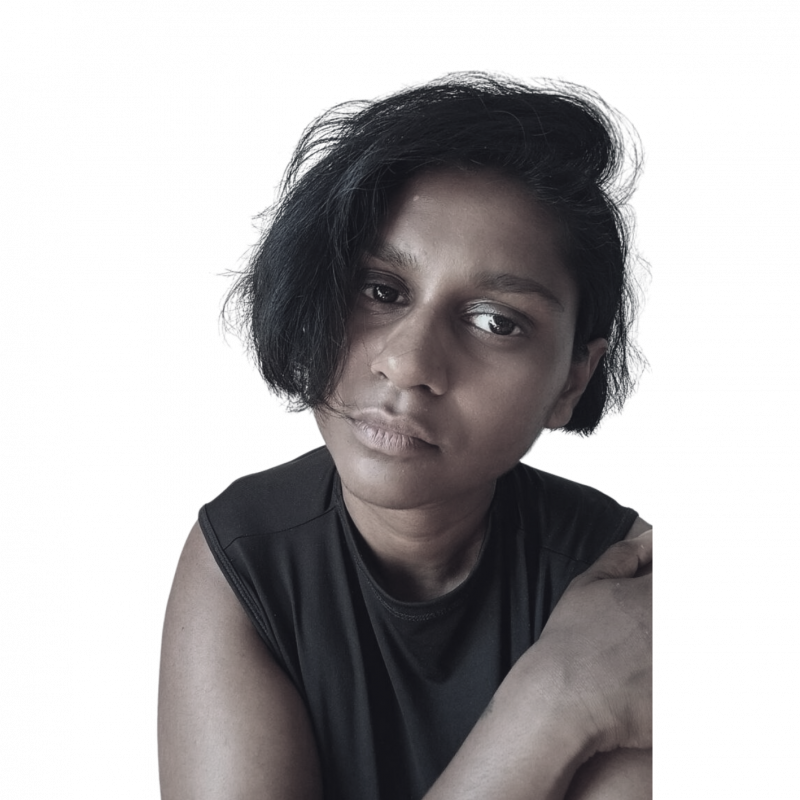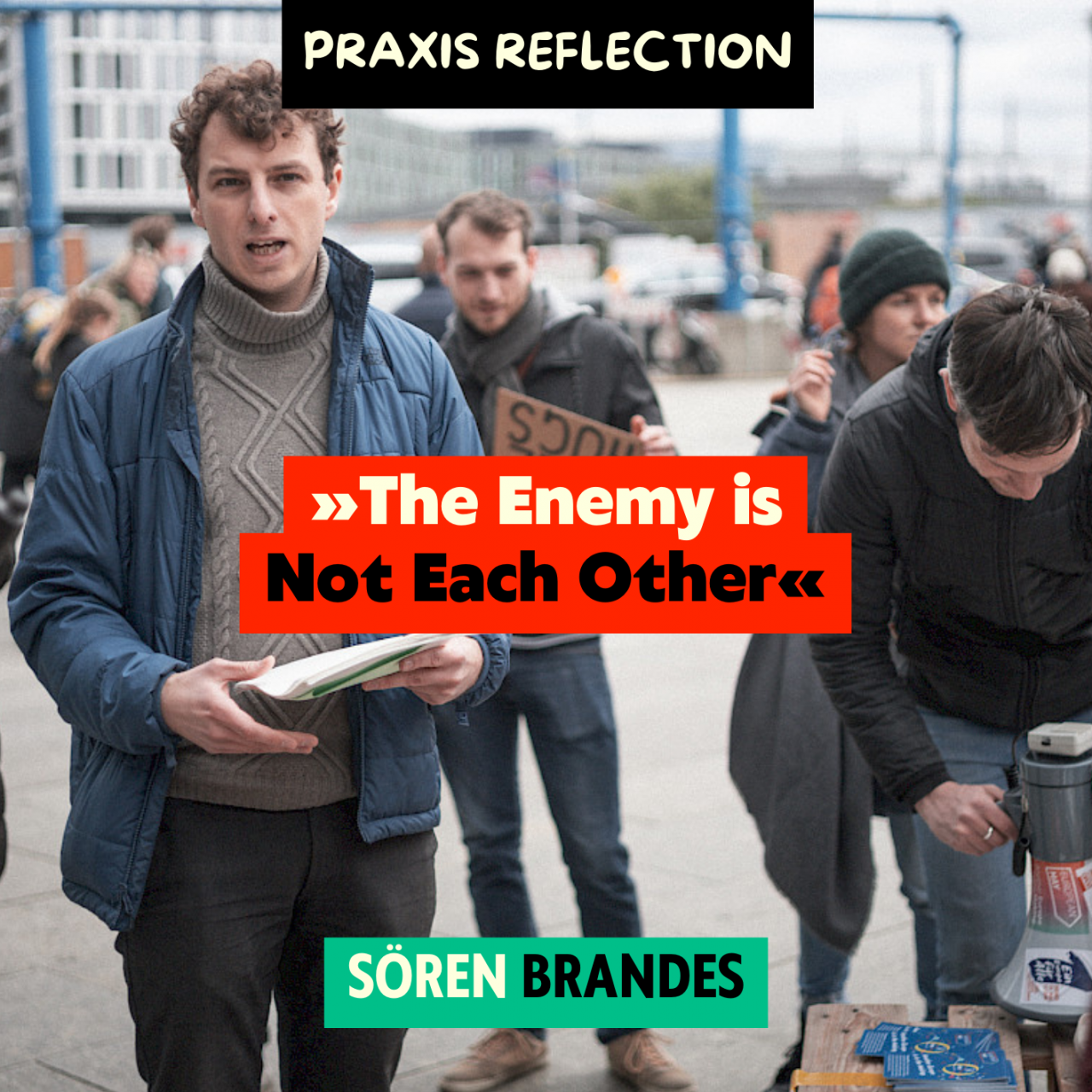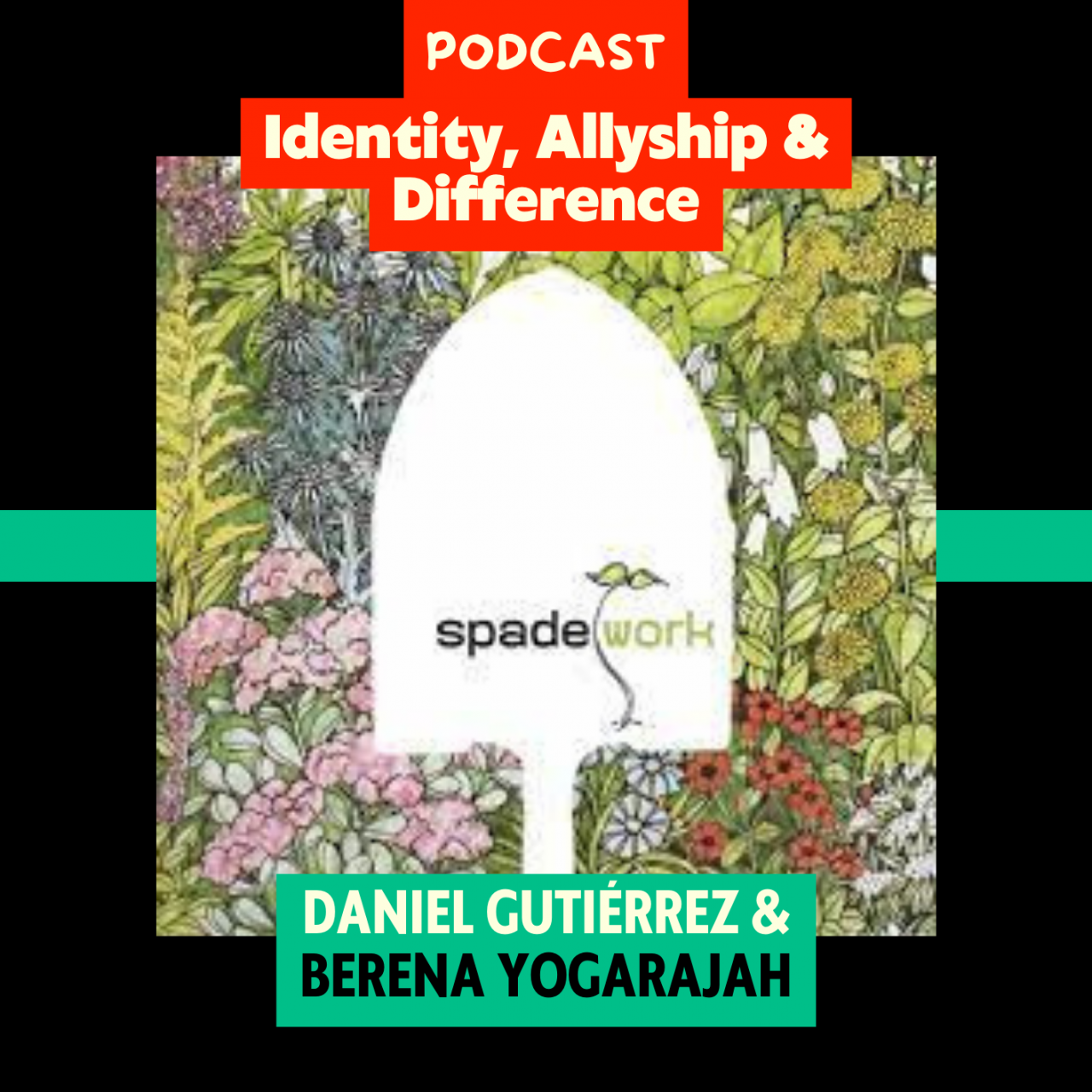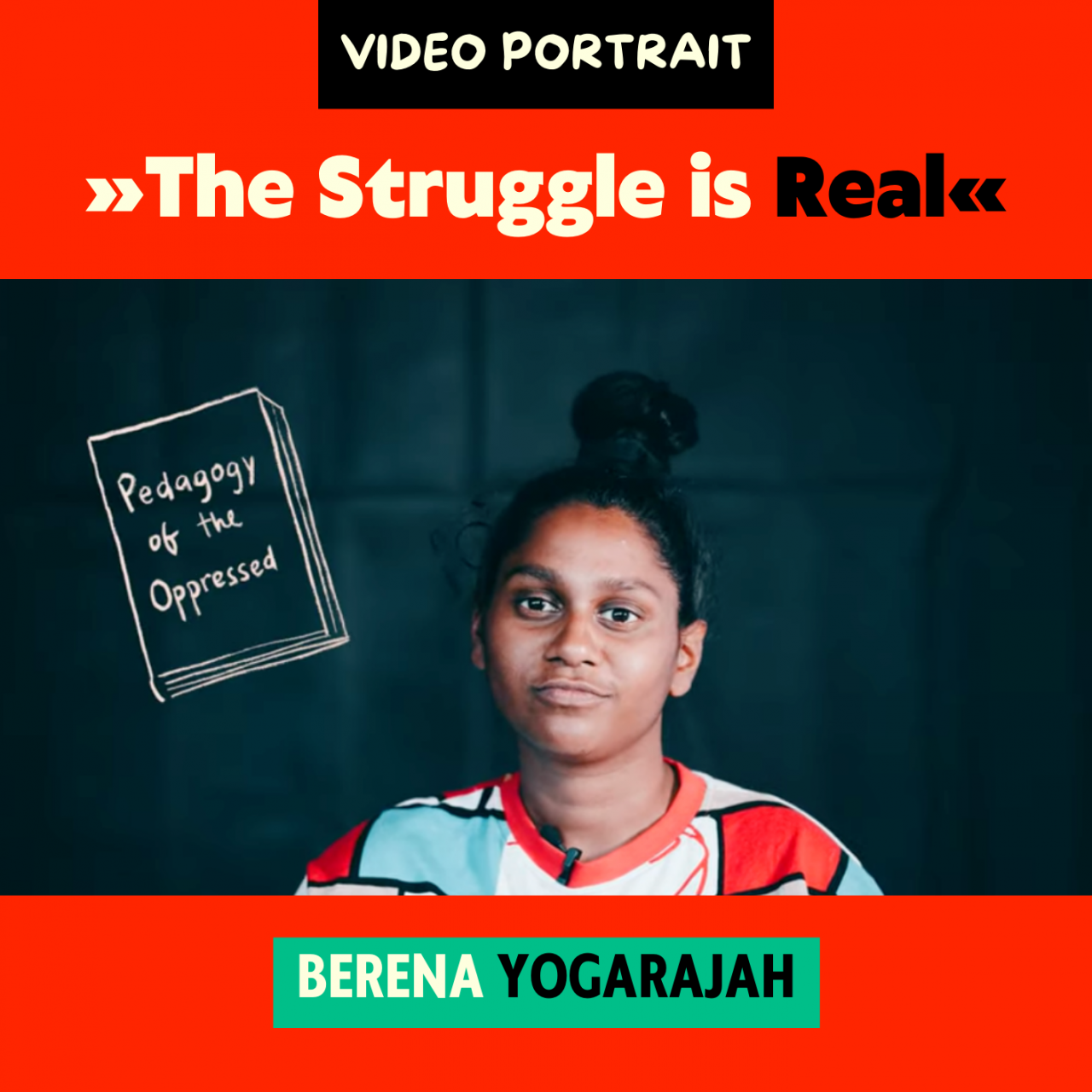1. Don’t overestimate yourself.
Many times “privilege checks” produce a one-dimensional view: you see yourself as a person with (too) many resources and “us” as negatively affected victims of expropriation, oppression and violence. This again is reproducing a racist perspective: Marginalized communities are never just weak, passive, helpless or incapable. It is fine to learn about structural inequality and intersectional vulnerabilities, but always remember to not victimize us and unlearn your perception of strength and social power hierarchies.
Open your eyes to the capacities and demands of the marginalized communities.
2. Your charity does not help our self determination.
“Power sharing” sometimes means allies make everything more accessible, safe and comfortable to "us". But you might overdo it when you take opportunities of self-determination away from us. If it is you who gives us your solutions, it is your self-determination, not ours. You are actively creating while we are passively receiving. If we want to overcome the hierarchical dynamic, we have to create the solutions we need ourselves. If you do everything for us instead, it creates a dynamic of individual charity and dependency not solidarity and mutual trust.
You cannot save or liberate us, that is a job we must do ourselves to step out of dependency, feel free to support.
3. We cannot overcome racism by individualistic approaches.
If you’re working on your awareness and your acts are only solving a specific situation, single incident or individual problem, you will not find structural, systemic and sustainable solutions that overcome the roots of the problem. Think big! Instead of opening up a panel to a certain person who is affected by racism, find out whether the venue can generally be more open for marginalized communities, e.g. by making special offers to anti-racist projects, initiatives and groups.
If an event takes place in an unsafe neighborhood, do not only accompany your friend of color, but organize a meeting point for all those, who do not want to go to the venue alone. Don't worry about your performance only, but make sure you contribute to a struggle that aims at the roots of the structures. They must be abolished, not the privileges themselves.
Being anti-racist should be about overcoming the origins of inequality.
4. Anti-racism cannot be measured by whether you please “the affected”.
Anti-racism is not about pleasing certain people or groups. If you always feel like you are trying to be likable or afraid of being a perpetrator, you are making it about yourself and whether you are being a good person. Find your own approach and self-interest, act out of conviction of what you think is meaningful in fighting racism. It will help you to be ok with your decisions no matter what, other than when you are criticized for something you only did out of obedience.
Don’t obey but think for yourself and then own it.
5. If you are always pointing out the everyday life differences between you and "the affected", you are not only affirming the patterns of inequality, but you might create even more distance and difference than necessary or given.
There are always shared needs and interests as well as shared experiences and values. The difference is where we come from and where we are at but not necessarily where we want to go. If we think we have the same rights and we want the same opportunities, we should encounter each other as such.
Acknowledging differences must come from understanding shared needs and visions as common ground or it's "othering".
6. If you are looking for the best anti-racist behaviour, beware that there are many anti-racist strategies.
When you choose one way that might seem the most appropriate, you can be sure that people from the same experiential background might be of a very different opinion. What some people consider awareness, others consider to be patronizing. Choosing between more or less racist behaviours many times means supporting a specific political approach that cannot be led back to „the marginalized“ as a homogenous group. If you are not willing to make mistakes, you are not helping anyone but yourself.
There will be different and contradicting opinions in the same community. Deal with it.
7. If you cannot critique or contradict marginalized communities, there is no eye-level.
There must be space for questions and contradictions. Also we make mistakes, too. If there is no honesty, you probably either idealize or infantilize us.
Don't oversimplify things by treating marginalized like gods or kids.
8. Are you considering yourself one of the “better people”?
Have you caught yourself rolling your eyes on other people‘s racist behaviour? Have you been proud of how much better you do? Have you started picking on white people, feeling like you are not one of them? If so, let me remind you: There is no place outside of racism...
Your allyship is not centered on the needs, challenges and struggles of the affected community but your moral superiority then.
9. Many times allies are not considering the struggle their own but try to act “nicely” in other people‘s struggles.
If so, find out and remember why your utopia depends on the reality of the marginalized. Find out why “our” liberation is always yours also. In feminist struggles we have learned that it is not about the liberation of women and queers but of all genders (like detoxing masculinity) - the same applies to anti-racism. If you mean to help, you are wasting your time.
If you are doing it for the liberation of all including yours, you will be able to take responsibility without patronizing.



